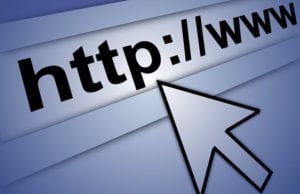 If you have used a VPN before, you may have noticed that the connection can be slow at times. That can be due to a number of different factors, any of which can cause you issues from time to time. In this guide, we will take a look at the causes of these issues and provide you with some ways to fix them. Before we do, though, let’s take a look at some of our favorite VPN choices to use.
If you have used a VPN before, you may have noticed that the connection can be slow at times. That can be due to a number of different factors, any of which can cause you issues from time to time. In this guide, we will take a look at the causes of these issues and provide you with some ways to fix them. Before we do, though, let’s take a look at some of our favorite VPN choices to use.
| Rank | VPN Service | Our Score | Server Locations | Visit |
|---|---|---|---|---|
| 1 |  | 9.8 | 160 |  |
| 2 |  | 9.4 | 118 |  |
| 3 |  | 9.2 | 145 |  |
| 4 |  | 9.0 | 125 |  |
| 5 |  | 8.8 | 140 |  |
How to Fix a Slow VPN Connection
As we mentioned, there are a few different steps you can take to help you get the best speeds possible. Let’s take a look at them now. Keep in mind these are in no particular order.
- Change Protocols – If you are offered a number of different protocols, some are definitely faster than others. That said, using a fast protocol may not always be the best option. Your choice really depends on your purpose. Some protocols sacrifice speed for security, while others sacrifice security for speed. Your best bet is to find one in the middle. OpenVPN UDP is considered to be the fastest and best protected, currently.
- Switch Connection Servers – While you may not realize it, the number of people on a VPN server definitely affects the speed. The more people you have on the server, the slower the server will be. Unfortunately, that issue has been around since the beginning of VPNs.
- Switch VPN Software – While most of the time, VPNs have their own optimized software, some times you can improve your speed by using a different one. Make sure if you switch, though, that you consult with the provider to make sure you have all the settings correctly configured.
- Enable Split Tunneling – This is a lovely little feature that is becoming more and more popular among providers. What it does is give you the option to better direct the apps you wish to protect. Instead of encrypting everything, the split tunnel only encrypts the apps you choose which will make it faster.
- Check Your Internet Connection – This could definitely be part of the cause of slowness with your VPN. While they seem to be limited to a point, the speed you get out of your connection can definitely coincide with the speed you have from your provider.
- Use a Wired Connection – Even though many do not have this option, especially if you are a mobile device, most computers still have wired port connections. You certainly do get a faster speed if you are using a wired connection vs. WiFi.
- Check System Resources – Checking for system usage is helpful. If you have some background processes running, it will definitely make your VPN connection slower. Try ending the task on those to make sure you are not affected by them.
- Change VPN Providers – If none of the steps above work, changing VPN providers may be a better bet. Depending on which one you select, not all VPN providers are the same. There are one that are better options than others.
And there you have the ways to fix a slow VPN connection. With any luck, this guide should solve your issues with them. Please share this post with your friends so they can fix issues they have with VPN speed. Follow us @VPNFan for the latest deals, guides, and news.
